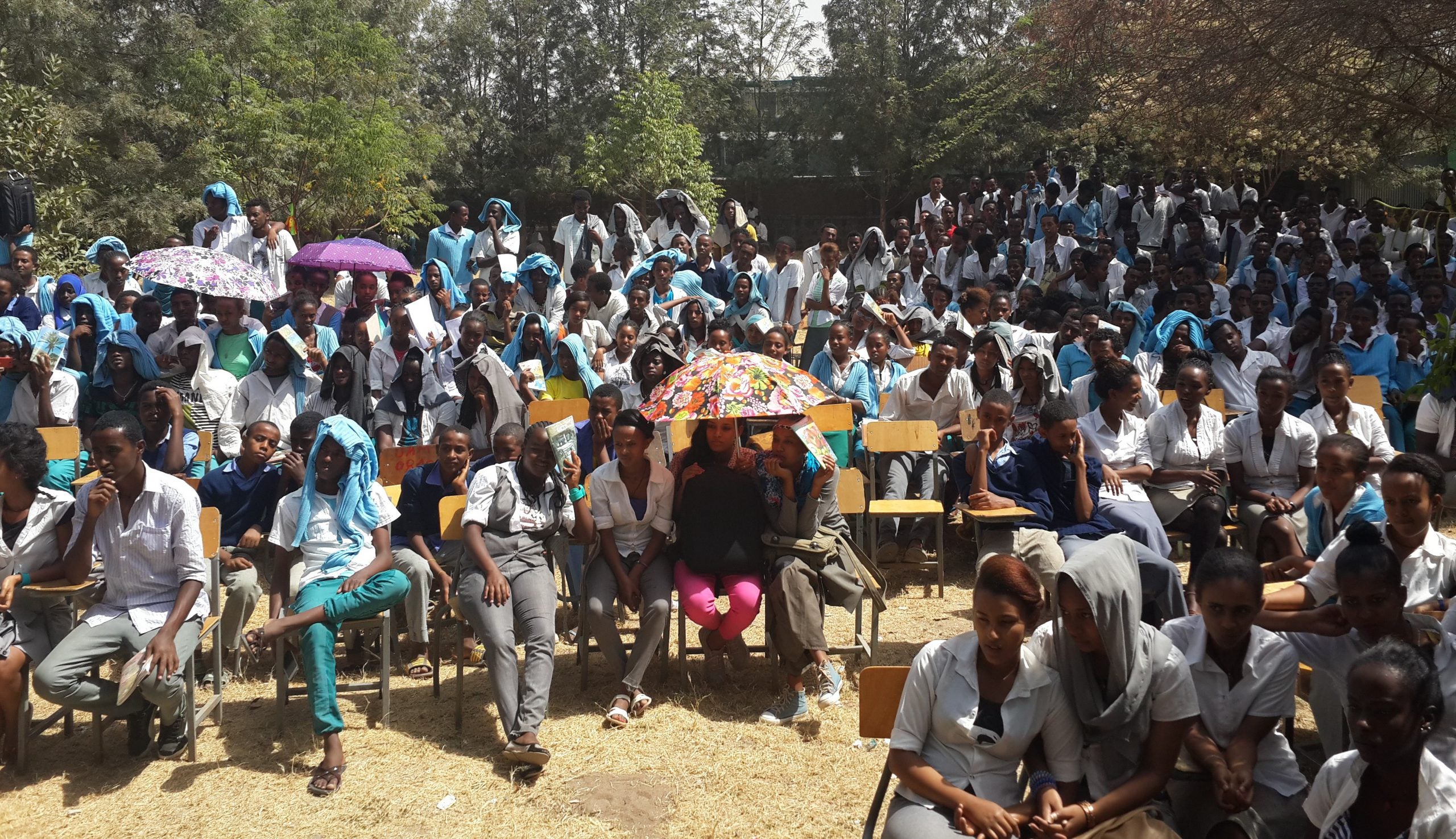Held annually through the Hawassa College of Teacher Education in Ethiopia, “Peace Week” is an opportunity for local high school and university students to express what peace means to them.
English Language Fellow Matthew Jellick joined his students in this year’s diverse “Peace Week” activities. With week-long training sessions and integrated activities like panel discussions and essay presentations, the conference was both educational and motivating. Topics of training ranged from the perception of culture to basic conflict-sensitive language. “Peaceful resolution through nonviolent communication methods are an integral component of sustaining peace in a country to which the world looks for the direction of African progress,” Jellick said.
Weeks before the conference itself began, 71 students submitted essays on the topic of “Telling Our Own Peaceful Stories.” Combined into a pamphlet distributed during the conference, the essays tell of personal experiences with peace as individuals, as Ethiopians, and as Africans. “[The essays are] a testament to the creative writing abilities of these students, and to the powerful message of how peace resonates with everyone,” Jellick said.
The first place winner of the essay contest was Meaza Haddis from Hawassa University. This is her essay in its entirety:

“The values of peace are not to just be understood in terms of theories or rules. Rather, peace, as a core element of a happy life, should be lived, inhaled, and known so as to have a clue about what it truly means and what values it has. One who does not have peace does not know its values. Hence, experiencing peace is necessary.
Peace is not something we receive from the outside environment but it is what we give to our world from our inner selves. I can’t reflect [on] what is not mine. What is in me depends in turn on the environment I live in. If I have inner peace, I can [then] contribute to world peace.
Peace is the most essential prerequisite for [a] satisfactory life since one can’t enjoy what he/she has if there is no peace. A person can’t be happy just because [they] are living in a peaceful environment or [a] world without establishing prolonged and sustained peace of their mind, soul, and heart.
Principles that promote the values of peace, as far as my understanding is concerned, don’t guarantee peace overnight. What they do best is bring tranquility through gradual realization of the values. Therefore, inner peace is crucial or needs to exist if we are going to talk about [the] values of peace at all.”

